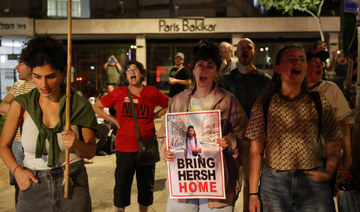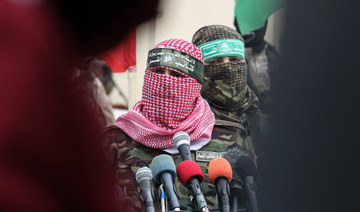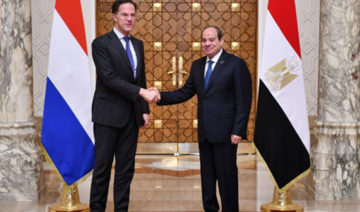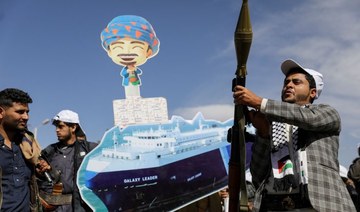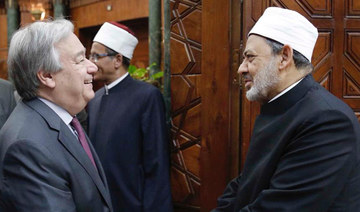ANKARA: President Tayyip Erdogan played up his plans to repatriate a million Syrian refugees as he rode a wave of nationalism to his third decade in power, but he could struggle to make good on the promise as conflict lingers on in neighboring Syria.
Erdogan, long seen as an ally by Syrian opponents of President Bashar Assad, emphasised refugee repatriation during bitter campaigning for Sunday’s run-off against Kemal Kilicidaroglu, who took an even tougher stance on the issue.
The focus on refugee return ahead of the election caused alarm among the 3.4 million Syrians living in Turkiye, where resentment toward them is growing.
Many of the refugees came from parts of Syria that remain under Assad’s control and say they can never return to their towns and villages while he remains in power.
Under Erdogan’s plans, they would not have to. With Qatari help, he says Turkiye has been building new housing in rebel-held northwest Syria — a region where Ankara has troops on the ground whose presence has deterred Syrian government attacks.
The plans imply a redoubling of Turkiye’s commitment to the rebel-held area where it has been building influence for years, even as Assad demands a timetable for the withdrawal of Turkish troops as a condition for progress toward rebuilding ties.
With Turkish voters increasingly resentful of the refugees — Turkiye hosts more than any other country – Erdogan’s plans put the issue at the heart of his Syria policy, alongside concerns about Syrian Kurdish groups that have carved out enclaves at the border and are deemed a national security threat by Turkiye.
Erdogan has said he aims to ensure the return of one million refugees within a year to the opposition-held areas. His interior minister, Suleyman Soylu, last week attended the inauguration of a housing project meant to accommodate returning Syrians in the Syrian town of Jarablus.
“It is our duty to fulfil our citizens’expectations about this issue through ways and means that befit our country,” Erdogan said in his victory speech on Sunday, adding that nearly 600,000 Syrians had already returned voluntarily to safe areas.
But for many Syrians in Turkiye, the prospect is unappealing.
“I would like to go back to Syria but not to Jarablus ... I would like to go back home, to Latakia,” said a Syrian who gave his name as Ahmed, a 28-year-old student at Ankara University, referring to a government-held region on the Mediterranean.
“I would like to go back, but if Assad stays, I can’t due to security concerns.”
Controlled by an array of armed groups, much of the northwest also suffers from lawlessness.
“Conditions in northern Syria remain so bad and unstable that large-scale return will be difficult to arrange, despite all these reports about Turkiye and Qatar building housing and infrastructure,” said Aron Lund, a Syria expert with Century International, a think tank.
“It seems like a drop in the ocean and the overall economic situation keeps deteriorating.”
Driven partly by its goal of securing refugee returns, Turkiye has changed diplomatic course on Syria, following other regional governments by reopening channels to Assad, who Erdogan once called a “butcher”.
But the rapprochement is moving more slowly than the thaw between Assad and his former Arab foes, reflecting Turkiye’s much deeper role in a country where Russia, Iran and the United States also have forces on the ground.
Analysts think Ankara will not agree easily to Assad’s demand for a withdrawal timetable, noting that any sign of Turkish forces leaving would prompt more Syrians to try to flee for Turkiye, fearing a return of Assad’s rule to the northwest.
“Turkiye is highly unlikely to compromise on troop withdrawal, which likely means hundreds of thousands of refugees heading their way if and when they leave Idlib,” said Dareen Khalifa of International Crisis Group, a think-tank.
Many Syrians in Turkiye were relieved at Kilicidaroglu’s defeat. During his campaign, he said he would discuss plans for refugee returns with Assad after reinstating relations, and that returns would be completed in two years but would not be forced.
He sharpened his tone after trailing Erdogan in the first round, vowing to send all migrants back to their countries.
Ibrahim Kalin, Erdogan’s chief foreign policy adviser, said on Monday that Turkiye wanted a safe, dignified and voluntary return.
International refugee law stipulates that all returns must be voluntary.
“We’re making plans to secure the return of one or 1.5 million Syrians in the first place,” Kalin told a local broadcaster.
Samir Alabdullah of the Harmoon Center for Contemporary Studies in Istanbul, a non-profit research institution, said he did not expect much to change now the election battle is over.
“Syrians are relieved after Erdogan’s victory ... There is nothing wrong with voluntary return. We do not expect policy change on migration,” he said.
Turkiye’s Erdogan faces struggle to meet Syrian refugee promise
https://arab.news/9ecse
Turkiye’s Erdogan faces struggle to meet Syrian refugee promise
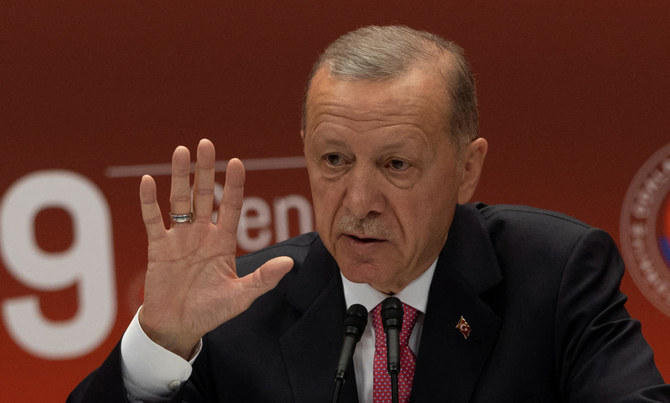
- Turkiye hosts 3.4 million Syrian refugees
- Erdogan wants to send a million back as resentment grows
Hamas official says Israel ‘will not achieve’ goals in Rafah
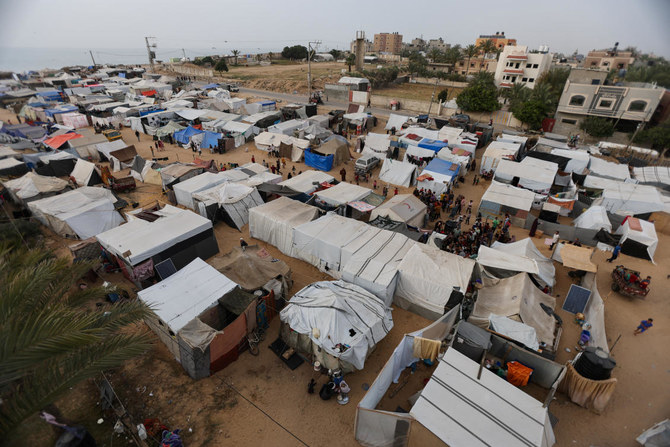
- “Even if (Israel) enters and invades Rafah, it will not achieve what it wants,” Ghazi Hamad said
- “This will undoubtedly threaten the negotiations because it is clear from this declared position that Israel is interested in continuing the war“
GAZA STRIP, Palestinian Territories: A senior Hamas official told AFP on Thursday that Israel would fail to meet its stated goals of defeating the Palestinian militant group and freeing hostages by invading the southern Gaza city Rafah.
“Even if (Israel) enters and invades Rafah, it will not achieve what it wants,” Ghazi Hamad said in an interview over the phone from Qatar, where a number of senior figures from Hamas’s political bureau are based.
Hamad said Israel had “spent nearly seven months in Gaza and invaded all areas and destroyed a lot, but so far has not been able to achieve anything of its main goals, whether eliminating Hamas or returning the captives.”
Israel has vowed to move on with the planned military operation in Rafah, despite international outcry and concern for about 1.5 million Palestinians sheltering in the city.
There are fears of huge civilian casualties and countries including Israel’s top ally and weapons supplier the United States have warned Israel against sending troops into Rafah.
“We have spoken with all parties involved in the conflict... about the seriousness of invading Rafah and that Israel is heading toward committing additional massacres and additional genocide,” Hamad said.
“This will undoubtedly threaten the negotiations because it is clear from this declared position that Israel is interested in continuing the war and aggression and has no intention of continuing negotiations and reaching an agreement,” he said.
Qatar, the United States and Egypt, have been mediating talks to secure a truce and the release of hostages, but those have stalled for days.
An Egyptian delegation is however set to travel to Israel on Friday to kickstart a new round of talks, Israeli media reported citing unnamed officials.
Israeli government spokesman David Mencer said Israel’s war cabinet was meeting Thursday “to discuss how to destroy the last battalions of Hamas.”
On Wednesday, Mencer said that since Israel began its ground invasion of Gaza on October 27, the army has destroyed “at least 18 or 19 of Hamas’s 24 battalions.”
Officials say the remaining battalions are in Rafah — the main target of the impending assault.
Most Gazans taking refuge in Rafah are sheltering in makeshift camps, and even before the start of the expected ground invasion, the city near the Egyptian border has been suffering regular Israeli bombings.
Hamad argued the planned invasion was exposing contradictions in Israeli Prime Minister Benjamin Netanyahu’s stance on Gaza.
“Netanyahu is stumbling because, on the one hand, he wants to return the captives to their families, as he says, but at the same time, he puts them in great danger, as his army deliberately killed many hostages.”
Israel’s army has admitted to mistakenly killing some hostages in Gaza.
Hamad accused Netanyahu of “manipulating and procrastinating” in a bid to “deceive the Israeli public that there are negotiations and deceive the international community as well that there are negotiations.”
He said the Israeli prime minister was “trying to twist the truth” and claim that “Hamas is the obstacle in these negotiations.”
Hamad said Qatar and Egypt were “making great efforts to reach an agreement,” but argued “the Israeli side unfortunately deals with the matter foolishly and is very confused.”
Hamad also told AFP that Hamas, which took power in Gaza in 2007, was already working on plans for the territory after the war.
He said the group was “working on the post-war phase to ensure that there is a great effort to rebuild the Gaza Strip and provide the necessities for a decent life.”
Palestinian militants took around 250 hostages to Gaza during Hamas’s October 7 attack that triggered the war.
Israeli officials say 129 hostages are still held in Gaza, including 34 the military says are dead.
The attack on southern Israel resulted in the deaths of 1,170 people, Israelis and foreigners, according to an AFP tally based on official Israeli figures.
Israel’s retaliatory offensive against Hamas in Gaza has killed 34,305 people, most of them women and children, according to the territory’s health ministry.
Shawarma restaurant in Cairo brings taste of home for displaced Palestinians
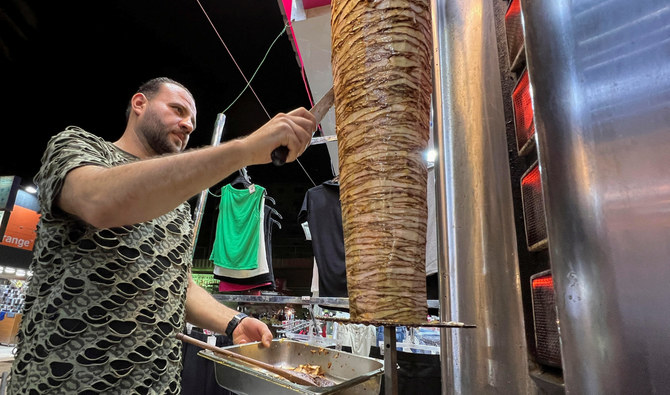
CAIRO: A Palestinian businessman displaced by the war in Gaza is bringing a taste of home for fellow refugees with a shawarma restaurant he has opened in Cairo.
“The Restaurant of Rimal Neighborhood” offers shawarma, a Middle Eastern dish of thinly sliced meat, and other Palestinian and Arab dishes.
“The name comes to eternalize Rimal, my neighborhood, and my homeland too,” said Basem Abu Al-Awn.
“It is also to replace the restaurant I once had in Gaza. Two restaurants of mine, in addition to my house and the houses of my relatives, were destroyed,” he said.
Abu Al-Awn hopes his time outside Gaza will be temporary, and he is determined to return to the enclave once the war between Israel and Hamas is over.
“I will return, even if I have to set up a tent near the rubble of my house. We are going back to Gaza, and we will rebuild it,” he said.
Rimal was Gaza City’s busiest shopping center, with large malls and main bank offices before Israeli forces reduced most of it to rubble.
It was also home to Gaza’s most famous shawarma places.
“The taste is the same. People tell us it tastes as if they are eating it in Gaza,” said Ahmed Awad, the new restaurant’s manager.
“The Egyptians who get to try our place keep coming back. They tell us the taste is nice and is different from the shawarma they usually get,” Awad said.
Gaza shawarma spices are unique and scarce in Cairo, so credit goes to Awad’s father, who mixes those available to give the dish a special Palestinian taste.
Many thousands of Palestinians have arrived in Gaza since the war began last October.
Awad, his wife, and four children arrived in Cairo three months ago.
In Gaza, he used to work in restaurants specializing in oriental and Western dishes.
With an end to the war looking like a distant prospect, Awad urged Palestinians not to give up.
“I advise them to work and take care of their lives. Their houses and everything may have gone, but no problem; it will come back again,” he said.
“Once things are resolved, we will return home, work there, and rebuild our country.”
Palestinians now stranded in Cairo include businessmen, students, and ordinary families who say they seek temporary legal residency to pursue investment and study plans until a ceasefire is in place.
Om Moaz, from Rafah in the southern Gaza Strip, had been struggling to pay for a rented house and treatment for her husband and daughter in Cairo. She began working from home, offering Palestinian food through social media.
She found there was a strong demand from both Egyptians and Palestinians.
“Some were in the war and came to Egypt. So they started ordering my food. And thank God, it’s a successful business, and hopefully, it continues,” she said.
‘Let’s help Yemen regain ability to chart its own future,’ US envoy Tim Lenderking tells Arab News
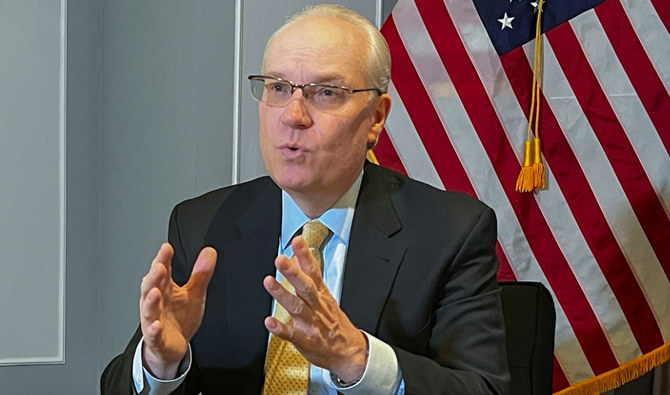
- Lenderking says it would be a ‘terrible tragedy’ to squander progress in Yemen peace process amid ‘competing crises’
- US envoy calls on Iran to stop fueling the conflict in Yemen and halt smuggling weapons to the Houthi militia
NEW YORK CITY: Houthi attacks on international shipping in the Red Sea and the Gulf of Aden in response to Israel’s military offensive against Hamas in Gaza must not derail the peace process in Yemen, Tim Lenderking, the US special envoy for Yemen, has said.
Since the war in Gaza began in October last year, attacks by the Houthis on commercial and military vessels in the strategic waterways have caused significant disruption to global trade.
The Iran-backed armed political and religious group, formally known as Ansar Allah, views itself as a part of the Iranian-led “Axis of Resistance” against Israel, the US and the wider West.
It has threatened to continue its attacks on vessels until Israel ends its assault on Gaza. Since January, the UK and the US, in coalition with five other countries, have responded with retaliatory strikes against Houthi targets in Yemen.
The US will halt these retaliatory strikes when the Houthi militia stops its attacks on shipping, Lenderking told Arab News in an interview, placing responsibility for de-escalating the situation in the militia’s hands.
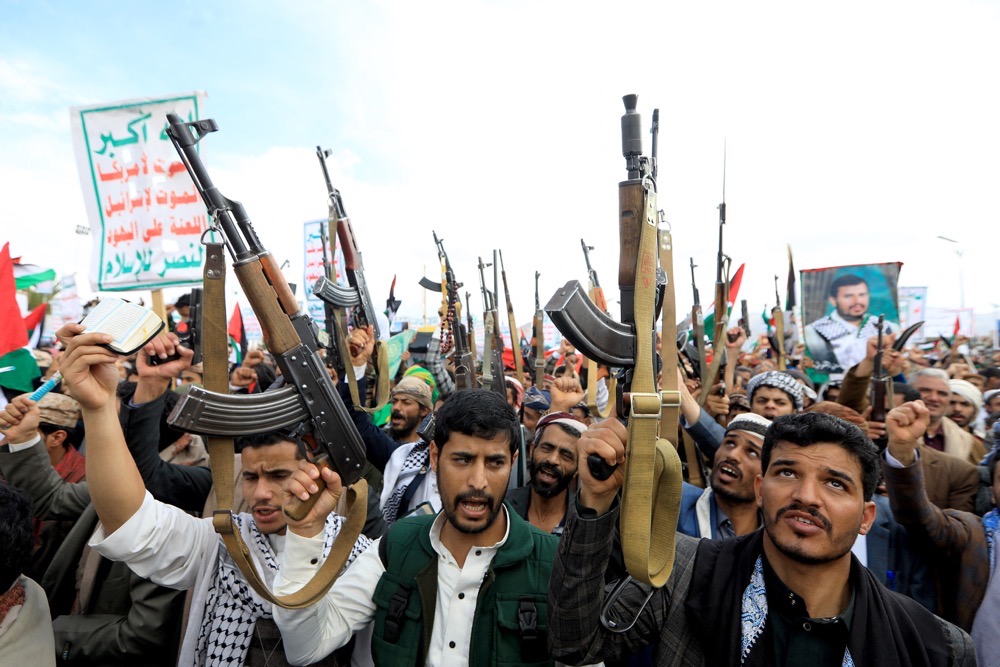
“The onus (is) on the Houthis to stop the Red Sea attacks,” he said. “That can prompt us all to begin to dial back, to de-escalate, to return the situation in Yemen to where it was on Oct. 6, which had considerably more promise and possibility than what exists now, and that’s where we want to return the focus.”
Lenderking called on Iran to “stop fueling the conflict (and) stop smuggling weapons and lethal material to Yemen, against UN Security Council resolutions.”
Yemen had never been so close to peace before the process was derailed by the latest regional turmoil, said Lenderking. The Yemeni civil war has gone on too long, he said: “It must stop.”
“The Yemeni people (have) suffered from this war for eight years now. They want their country back. They want their country (to be) peaceful. They don’t want foreign fighters in Yemen. They don’t want the Iranians in Sanaa. They don’t want the IRGC, the (Islamic) Revolutionary Guard (Corps) wandering around in Sanaa.
“Let’s help Yemen regain its country and its ability to chart its own future. That’s what the US so, so dearly wants.”
He added: “We’re trying very hard to marshal and maintain an international effort to keep the focus on Yemen’s peace process, on the very critical humanitarian situation.
“But look at what’s crowding us out: Terrible tragedy unfolding in Gaza. Russia’s war in Ukraine. Afghanistan. Sudan. There are many competing crises that are dominating the attention of the US and the international community.”

While the war in Yemen is linked to other conflicts raging in the region, the UN has recently said the world owes it to the Yemenis to ensure that resolving the war in Yemen is not made contingent upon the resolution of other issues, and that Yemen’s chance for peace does not become “collateral damage.”
“We cannot escape what’s happening in Gaza,” said Lenderking. “Not one single day goes by when the people I talk to about Yemen don’t also talk about Gaza. So we know this is a searing and very, very important situation that must be dealt with.
“This situation is holding up our ability to return the focus to the peace process in Yemen, to take advantage of a road map that was agreed to by the Yemeni government and by the Houthis in December, and get the Houthis to refocus their priorities not on Red Sea attacks — which are hurting Yemenis by the way, hurting Yemen — but to the peace effort in Yemen itself.”
Speaking during a UN Security Council briefing last week, Hans Grundberg, the UN envoy for Yemen, said the threat of further Houthi attacks on shipping persists in the absence of a ceasefire in Gaza — the urgent need for which was underscored by the recent escalation in hostilities between Israel and Iran.
Lenderking said: “We continue to hear from the Houthis that these (two) issues are linked and that (the Houthis) will not stop the attacks on Red Sea shipping until there’s a ceasefire in Gaza.
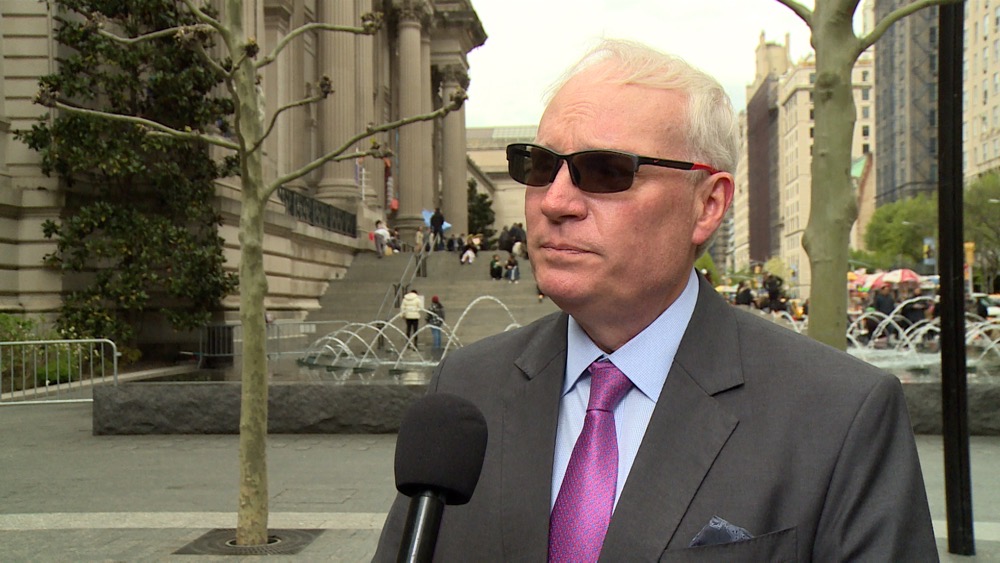
“We believe there’s essential progress that could be done now. There are 25 members of the Galaxy Leader crew, the ship that was taken by the Houthis on Nov. 19 last year, still being held.
“They’re from five different countries. There is no reason why these individuals, who are innocent seafarers, are being detained in Hodeidah by the Houthis. Let them go. Release the ship. There are steps that could be taken. We could continue working on prisoner releases.
“These kinds of things will demonstrate to the Yemeni people that there’s still hope and that the international community is still focused on their situation.”
Lenderking said it would be a “terrible tragedy” to squander the progress toward peace that had been made in the previous two years.
A truce negotiated in April 2022 between the parties in Yemen had initially led to a reduction in violence and a slight easing in the dire humanitarian situation in the country. Two years on, the UN has lamented there is now little to celebrate.
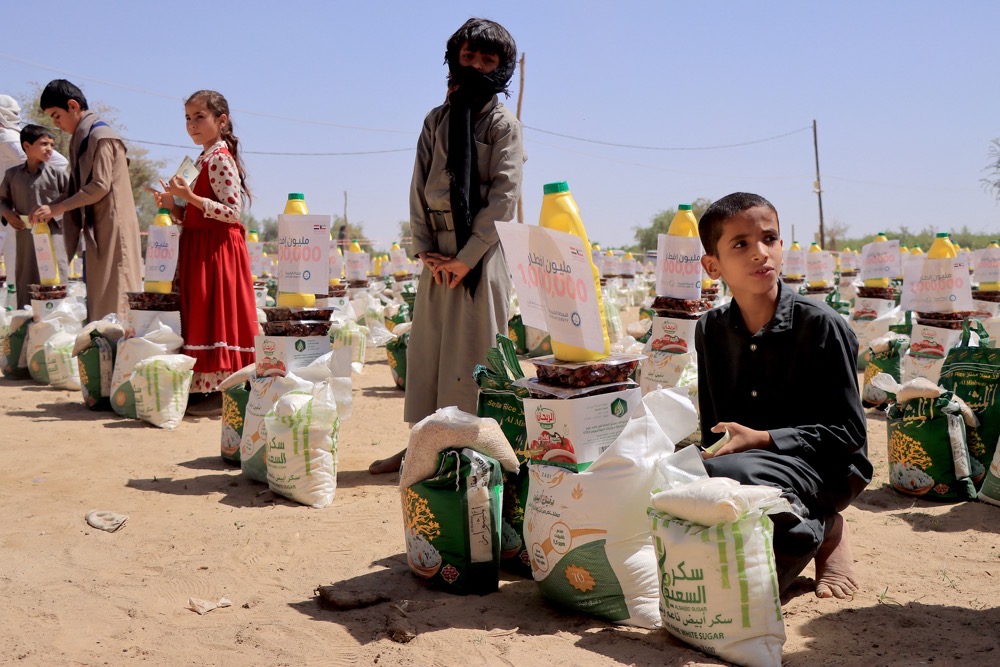
“Detainees we had hoped would be released in time to spend Eid with their loved ones remain in detention,” said UN envoy Grundberg. “Roads we had hoped to see open remain closed.
“We also witnessed the tragic killing and injury of 16 civilians, including women and children, when a residence was demolished by Ansar Allah (Houthi) individuals in Al-Bayda governorate.”
The humanitarian situation in Yemen has also become markedly worse in recent months amid rising food insecurity and the spread of cholera.
Edem Wosornu, director of operations and advocacy at the UN Office for the Coordination of Humanitarian Affairs, told the Security Council in the same briefing that the situation had deteriorated further after the World Food Programme suspended the distribution of food aid in areas controlled by the Houthis in December 2023.
This pause followed disagreements with local authorities over who should receive priority assistance and was compounded by the effects of a severe funding crisis on WFP humanitarian efforts in Yemen.
“The most vulnerable people — including women and girls, marginalized groups such as the Muhamasheen, internally displaced people, migrants, asylum seekers and refugees, and persons with disabilities — still depend on humanitarian assistance to survive,” said Wosornu.
Wosornu also voiced concern about an increase in cases of cholera in Yemen amid the deterioration of public services and institutions.
“The re-emergence of cholera, and growing levels of severe malnutrition, are telling indicators of the weakened capacity of social services,” she said.
“Almost one in every two children under five are stunted, more than double the global average: 49 percent compared to 21.3 percent.
“Emergency stocks of essential supplies are almost depleted. And water, sanitation and hygiene support systems need urgent strengthening.”
The humanitarian response plan for Yemen is only 10 percent funded, with funding for its food security and nutrition programs standing at just 5 percent and 3 percent respectively, according to an informal update presented to the Security Council by the OCHA this week.
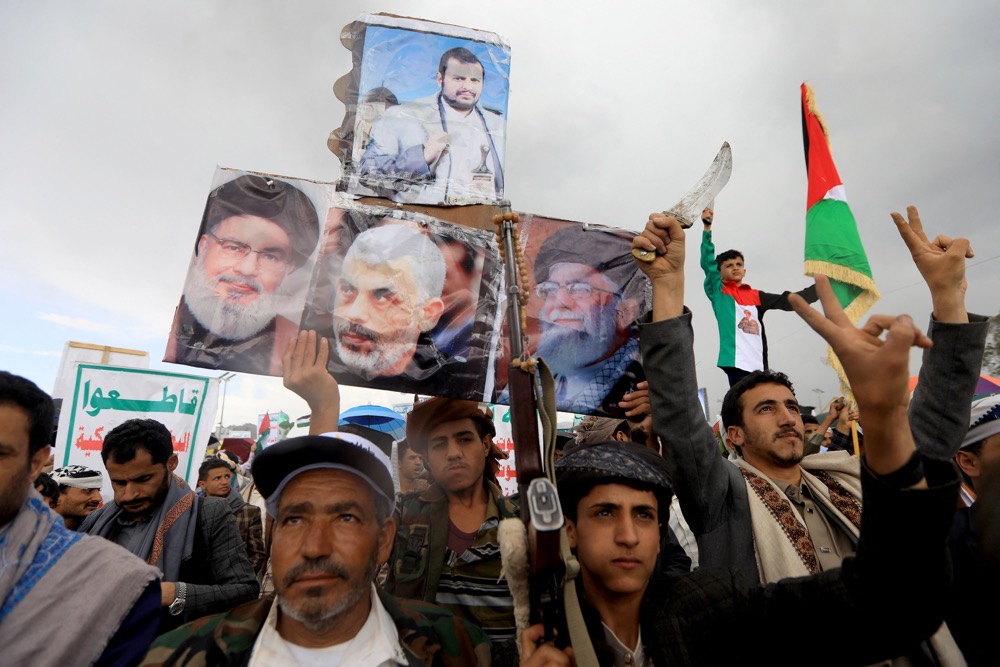
Wosornu appealed to the international community to take urgent action to help fill the funding gaps.
Commenting on the funding shortage, Lenderking said: “When there’s a genuine possibility of a Yemen peace process, donors will take note of that and respond. But the fact that we’re in this limbo, where the peace process is on hold while the Houthi is continuing these attacks (in the Red Sea), that I think is to be blamed on the Houthis because they’re derailing what was a legitimate peace process.
“But once we can get back to that, I think we could call on the international community to say, look, there is a ray of hope. There is a process. There is a commitment. The US is supporting an international effort. We can get the donors to come back to Yemen, despite all of the competition for these very scarce resources.”
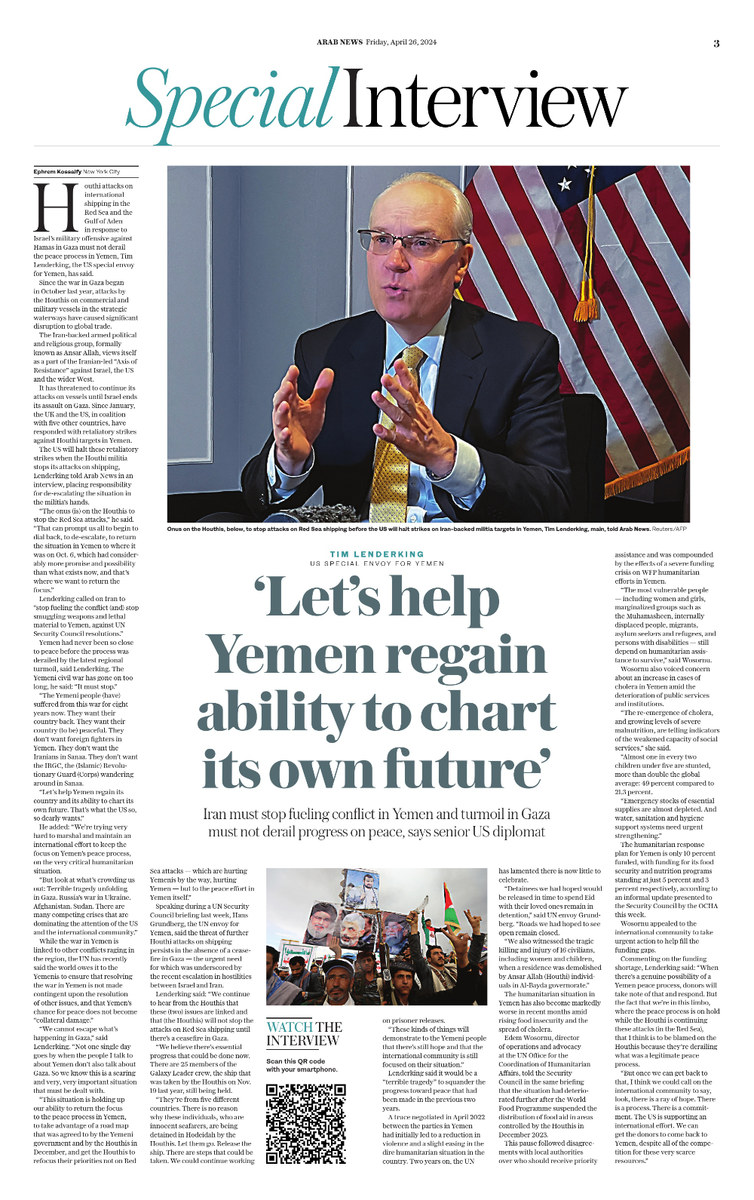
British Royal Navy shoots down missile for first time since Gulf War in 1991 amid Houthi attacks on shipping

- Iran-backed group said its missiles targeted US ship Maersk Yorktown, an American destroyer in the Gulf of Aden and Israeli ship MSC Veracruz
LONDON: A British Royal Navy destroyer shot down a ballistic missile on Wednesday for the first time since the first Gulf War in 1991, the UK’s defense secretary told The Times newspaper.
In a report published Thursday, Grant Shapps told the newspaper that HMS Diamond used its “Sea Viper” missile system to target the weapon, which Yemen’s Houthi militia said they used to target two American ships in the Gulf of Aden and an Israeli vessel in the Indian Ocean.
The Iran-backed group said its missiles targeted US ship Maersk Yorktown, an American destroyer in the Gulf of Aden and Israeli ship MSC Veracruz in the Indian Ocean, its military spokesman Yahya Sarea confirmed.
It is the first such attack from the Yemeni militia in two weeks in the region, where Royal Navy Type 45 destroyers have been deployed to protect commercial ships since the Houthis initiated strikes on global shipping in November last year in solidarity with Palestinians in Gaza.
“The Yemeni armed forces confirm they will continue to prevent Israeli navigation or any navigation heading to the ports of occupied Palestine in the Red and Arabian Seas, as well as in the Indian Ocean,” Sarea said on Wednesday.
Shapps said the latest Houthi attack was an example of how dangerous the world was becoming and how “non-state actors were now being supplied with very sophisticated weapons” from states such as Iran.
His comments came after UK Prime Minister Rishi Sunak this week pledged to increase spending on British defense to 2.5 percent of national income, something Shapps said was “so vital” given continued tensions in the Middle East.
Al-Azhar Al-Sharif condemns terrorist crimes against civilians in Gaza
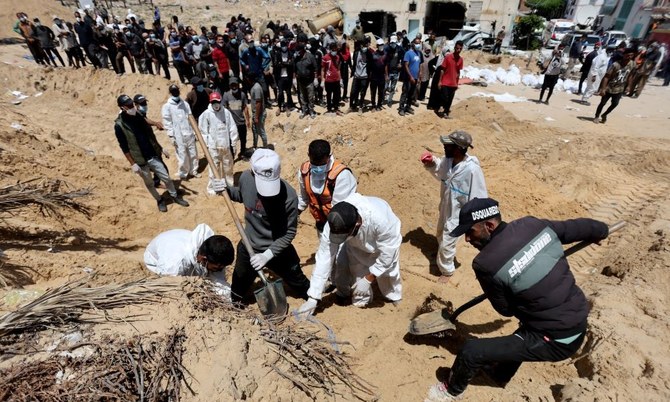
- Al-Azhar Al-Sharif reiterated the need for the international community to assume its responsibilities and put a stop to the ‘frenzied aggression against the people of Gaza’
- Al-Azhar said that the bodies of hundreds of Palestinians, including patients, had been uncovered in mass graves at the Nasser Medical Complex in Khan Younis
CAIRO: Al-Azhar Al-Sharif — Sunni Islam’s oldest and foremost seat of learning — has strongly condemned “the terrorist crimes being committed against civilians in the Gaza Strip.”
In a statement, Al-Azhar censured the attacks, “the hideousness of which was revealed through the widespread reports about mass graves of hundreds of bodies of children, women, the elderly, and medical personnel in the vicinity of the Nasser and Al-Shifa Medical Complexes.
“Also, dozens of bodies were found “scattered” in shelter and displacement centers and tents, and residential neighborhoods throughout the Strip.”
Al-Azhar said that it affirmed to the world that “these mass graves are the definitive proof that these hideous atrocities and horrors have become normal daily behavior for Israel.”
It said that the people of the world must unite to protest in a way that deterred the regimes supporting these crimes.
Al-Azhar demanded an urgent international trial against “the terrorist occupation government, which no longer knows the meaning of humanity or the right to life and is committing genocides every day.”
It reiterated the need for the international community to assume its responsibilities, stop the “frenzied aggression against the people of Gaza and the consequent suffering and unprecedented humanitarian disasters, and ensure the protection of civilians and the delivery of sufficient and sustainable humanitarian aid to all parts of the Gaza Strip.”
Al-Azhar expressed its “sincere condolences and sympathy to the Palestinian people and the families of the martyrs, calling on the Lord Almighty to shower them with His vast mercy and forgiveness, to reassure the hearts of their families and loved ones, and to speed up the recovery of the sick.”
Citing media reports, Al-Azhar said that the bodies of hundreds of Palestinians, including patients, had been uncovered in mass graves at the Nasser Medical Complex in Khan Younis since Saturday.





